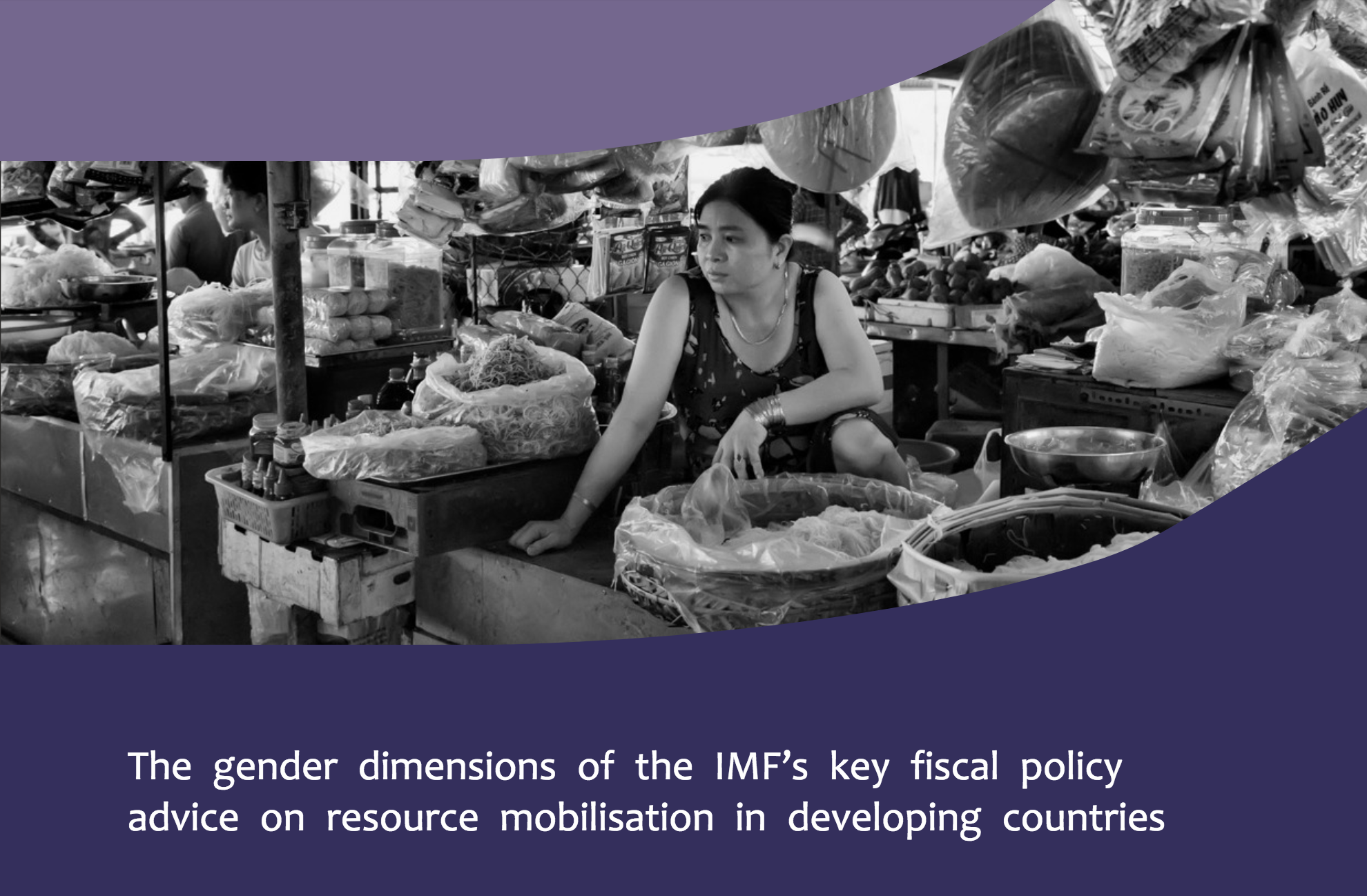The CSO watchdog Bretton Woods project, which monitors the IMF and World Bank, just issued a new briefing titled “The IMF, Gender Equality and Expenditure Policy”, within its Gender and Macroeconomics project (GEM). GEM is an initiative of the Bretton Woods Project and the UK-based Gender and Development Network (GADN), aimed at challenging the ways in which macro policies currently promoted by international financial institutions (IFIs) undermine gender equality in developing countries. “Working with allies globally, the GEM project encourages economic decision-makers to promote alternative gender-just policies”.
This briefing is part of a forthcoming series on the gendered impacts of IMF policy, examining the Fund’s policy advice and conditionalities in the context of resource mobilisation, labour market participation and flexibilisation and government expenditure.
The first publication, in April, was “The IMF, gender equality and VAT: The gender dimensions of the IMF’s key fiscal policy advice on resource mobilisation in developing countries”, written by Mae Buenaventura, from the Asian Peoples’ Movement on Debt and Development (APMDD), civil society movement who coorindates Global Alliance for Tax Justice’s regional network member Tax and Fiscal Justica Asia (TAFJA).
“The IMF, Gender Equality and Expenditure Policy”, subtitled “The gendered costs of austerity: Assessing the IMF’s role in budget cuts which threaten women’s rights” was written by Kate Donald and Nicholas Lusiani of the Center for Economic and Social Rights (CESR).
“Ultimately, the authors write, overly restrictive macro-economic targets to reduce public expenditure have real economic, political and human rights costs, disproportionately shouldered by women, which palliative social safety nets and targeted gender programmes cannot alone alleviate. To respect governments’ standing human rights obligations, the IMF (and its Board which are human rights duty-bearers under international law) should prioritise efforts to implement more robust and more progressive tax and fiscal alternatives which could prevent the pain of fiscal adjustment altogether”.
It provides a brief assessment of the changing role of the International Monetary Fund (“IMF” or “the Fund”) with regards to one key fiscal consolidation measure: contractions in public expenditure. The briefing explores the Fund’s positive and negative influence over public expenditure decisions, and further explains how public spending cuts have an especially negative impact on women’s human rights, impeding progress towards gender equality. Subsequently, this briefing includes a case study of Brazil, a country in which the IMF has recently played a significant role in gender-unequal public spending cutbacks. The briefing concludes with a series of proposals to help better safeguard women’s rights in times of economic crises.
You can download the briefing here and follow further publications on Gender Equality and Macroeconomics page of the Bretton Woods Project.
